If you are running an eCommerce business... you have order fulfillment as an essential part of its operation.
As a startup, you handle everything... from receiving orders, processing, packing, pick-up, and delivery.
Yet, as your business grows, it may be difficult to fulfill customer orders internally.
You'll be needing help from experts to support your eCommerce store's order fulfillment process.
That's when third-party logistics services (3PL) come into play!
In this blog, you'll learn the ins and outs of third-party logistics.
And determine whether or not they are right for your business.
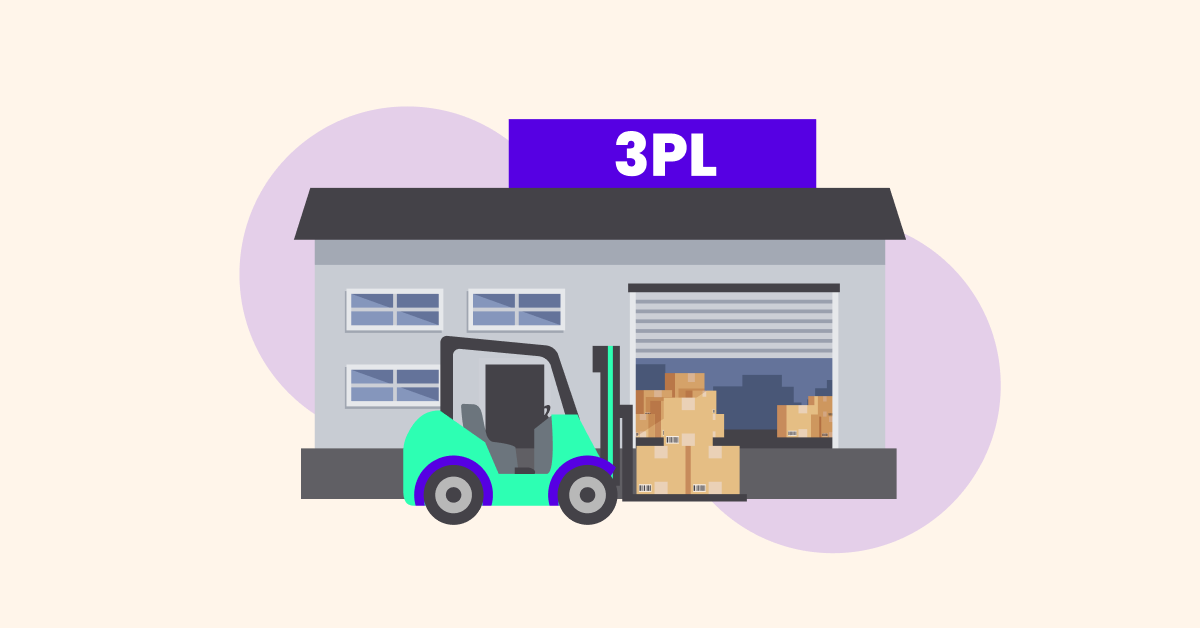
Now let's get started...
What is Third Party Logistics?
A 3PL (third party logistics) fulfills eCommerce orders, supply chain management, and logistics... to get eCommerce products to their customers.
It is a sort of business partner that assists with the transparent supply chain of your ecommerce store.
Instead of having your own warehouse, and doing the order processing and distribution yourself... you use a 3PL partner's warehouse and services.
So that when a customer purchases online, 3PL can do the pick-up from the factory to the warehouse.
And then from the warehouse, they deliver directly to the customer.
Do you know what's so good about this?
They can also provide retail distribution and process returns.
3PL offers you the opportunity to partner with experts... on the most crucial aspects of your eCommerce business.
As a result, you can devote more time and energy... to marketing, growth, and customer satisfaction.
You can expect a third-party logistics company to perform the following tasks for you:
- Receiving parcels, pallets, or cartons
- Keeping your products in a safe place
- Shipping your orders
- Accepting and inspecting returns
Now let me give you...
5 Types of Third-Party Logistics Providers
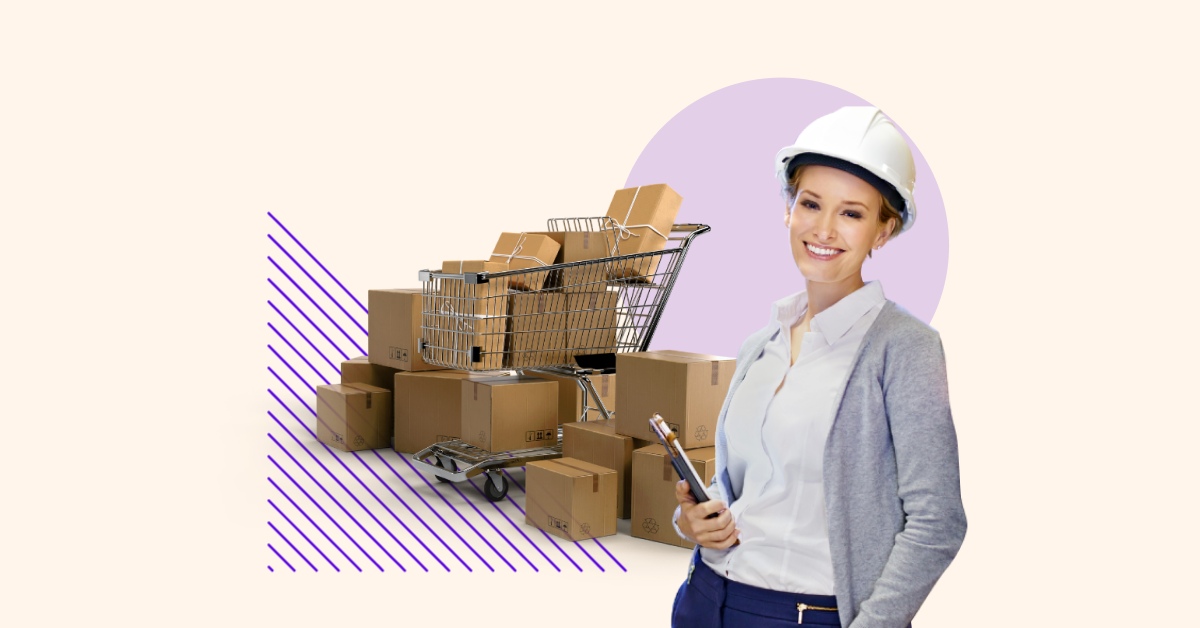
1. Full Logistic Service
A full third-party logistics provider can help you deliver orders quickly to your customers.
A good example is Shopify.
Shopify has a wide network of strategically located fulfillment centers.
They can ensure that the ordered item is available. And they can deliver your order on time at the right location.
And orders are not just shipped faster... a lot of times, it's also at a reduced rate.
Full-service 3PL may also offer:
- Intelligent inventory. These services recommend where the inventory should be located... in order to be close to customers.
- Ability to control fulfillment processes. Ensure orders arrive fast and stand out through marketing inserts. With the pick rate, the packaging is included. And what's more? you can use your own brand packaging.
- Easily integrated. You do not need to install any technology. There are many 3PLs that offer extensive integrations. Not to mention, regular maintenance.
- Same-day processing. For example: If you receive an order before 12 noon, it will be shipped out that same day.
The next type of 3PL is...
2. Warehouse And Distribution Based
A common type of third-party logistics service is a facility that stores, ships, and handles returns.
This is a big help if you don't have warehouse space for your inventory.
With innovative warehouses, you can offer one or two-day shipping.
And if you're looking to grow internationally... international warehouses are a great option.
These warehouses will help you in your global supply chain management.
Also, a 3PL warehouse can lend retailers the experience of refining product fulfillment workflows.
And it is wise to choose a 3PL warehouse that offers access to a variety of distribution centers.
This will make the fulfillment services and processes easier.
A larger network of warehouses will be necessary if you promise customers a faster delivery time.
Because shipping speed depends on the distance between warehouses and customers.
More so, it's important to accurately forecast your inventory levels in order to effectively stock up on your warehouse network.
Finding out when your warehouse stops delivering orders for the day is also important.
For example, if an order is placed after the warehouse cut-off time of 12 noon, it will be shipped the next day.
This is important. So your customers will be aware of the expected time of delivery.
And do take note that a single late delivery can cost 17% of those customers.
This brings me to the next type of 3PL...
3. Transportation Based
Transportation-based 3PLs move goods from one location to another.
For instance, stocks are transported from your factory to your warehouse.
They could also transport inventory from your store to a customer.
When choosing a 3PL parcel transportation provider... it's best to explain your origin and destination locations.
And also tell them the expected timeline for stock movement between origin and destination.
Ask them about their shipping methods, their service level, and any prices and discounts they may give you.
In the case of global freight transportation, some companies include brokerage fees.
While the others include import and export taxes.
Let's move on to...
4. Financial Based
These are 3PL companies with a financial focus.
They provide internal controls for tasks. This includes cost accounting, freight auditing, and inventory management.
And they use tracking, tracing, and monitoring for inventory tools.
By doing so, consistency will be achieved and discrepancies eliminated.
And the last 3PL type...
5. Information Based
These are internet-based, B2B 3PL companies. They use electronic markets to facilitate transportation and logistics services.
Now, let me move to...
The Benefits Of a Third-Party Logistics Company
You Get To Work With The PROs
As an eCommerce brand owner, you are responsible for getting products in front of customers.
As well as refining products, and providing experiences that make customers come back.
But logistics may not be your cup of tea.
And in most cases, it may not fall within the purview of an eCommerce site owner to deliver inventory to a customer.
But still, it is a crucial component of any online store.
Fortunately, 3PLs specialize in shipping and fulfillment optimization.
So it won't get in the way of other important things relevant to your business.
A 3PL will provide you with better results across multiple aspects of your business, including logistics.
And you can put more effort into your larger-picture strategy to grow the company.
Next benefit of 3PL...
You Can Ensure Cost Savings
Third-party logistics companies do not just specialize in logistics... they have a larger network than your supply chain department.
Their connections in the logistics sector allow them to have greater influence.
That's why they can also help in negotiating more favorable terms.
And they can even offer greater discounts to clients.
All of these factors can help minimize the cost of your overhead.
That is why you can also save money by partnering with a third-party logistics provider.
As they can handle not just warehousing... but also transportation, staff track technology, etc.
Next...
You Can Concentrate on Core Competencies
Having your logistics outsourced will allow you to concentrate on your business's core competencies.
It is possible to benefit from the expertise of logisticians without having to invest internal resources.
And you can focus on other aspects of your business.
Another benefit is...
Obtain Flexibility and Scalability
It allows enterprises to utilize supply and distribution resources in accordance with current business requirements.
So, when sales are down, there are no wasted investments and resources.
On the other hand, when demand increases, you can upscale.
So it's a win-win.
The fifth benefit...
Boost Your Business Growth
Third-party logistics plays an important role in supply chain management.
Because they can facilitate access to markets where businesses do not yet have a presence.
You'll be able to do inventory management in a new market.
You can save money on warehousing, equipment, and labor... and the effort of learning the logistical aspects of the market.
The last benefit of 3PL...
Customer Satisfaction
With all the above benefits... you can expect better services and response times and an enhanced brand reputation.
Ultimately, this results in satisfied customers... which is what every business should strive for.
Now, let me jump to...
How Does The 3PL Process Work?
The 3PL fulfillment process varies depending on your provider and the services agreed upon.
But to simplify, the process looks like this:
- 3PL picks up inventory directly from the factory and delivers it to the warehouse.
- When a customer places an order on your site, it is forwarded to the 3PL provider. It is processed manually or automatically... if it is integrated with your site. Inventory management software can help you keep track of your inventory.
- 3PL provider receives your stock and organizes it at their warehouse.
- From the warehouse, the item is then picked up. They pack the item with the receipt and order details. Then 3PL prints the shipping label. But sometimes, their shipping carrier partners do it.
- Pick up the package from your 3PL's distribution center... and deliver them to your customer.
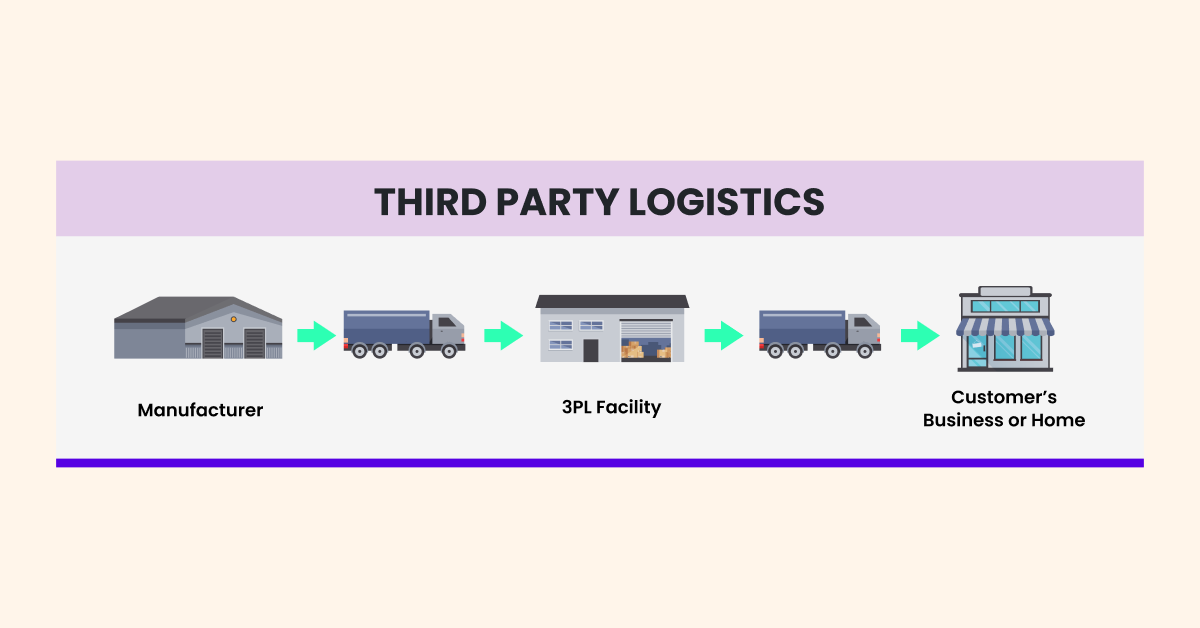
Now, you're probably wondering...
How Should You Choose a Third Party Logistics Facility?
A third-party logistics should have warehouses in the areas in which you operate.
Your costs will skyrocket if the 3PL isn't near where you want to sell.
For instance, if your customer base is in the United States, then you should use third-party logistics located there.
Another thing... If you are into wholesale, your profits will be higher if you use a 3PL in a state without sales taxes.
For instance, in Oregon, you do not have to pay sales tax when you ship a product to their warehouses.
That is why it is crucial to consider whether the 3PL has enough warehouses. Check the areas near your major markets for available warehouses.
More so, if you have a huge sales volume, having 3PL locations near your customers will be an advantage... and it will save you a lot of money.
Besides, it will also cut shipping times... your customers will surely love you for that. 🙂
Just a few pointers...
1. Make Sure Your 3PL Has Top-Of-The-Line Warehouses
For a warehouse to be high quality, it must:
- Be temperature-controlled
- Have 24/7 security
- Have a full staff
- Have regular drop-offs and pick-ups with carriers like FedEx, UPS, and USPS
- Can accept cartons, pallets, and small packages
Another thing to consider when choosing 3PL...
2. You Will Need A 3PL That Can Handle Your Sales Volume
Some third-party logistics are only cost-effective if you have a high volume of business. There are some who are more flexible.
Make sure that you select one that meets your business volume needs. If you can sell big volumes like 100 units per day, ensure your 3PL can deliver those 100 units.
Next point to consider...
3. Check if They Can Offer References On Their Past Performance
3PLs will usually be willing to share with you a record of at least two years of financial statements.
Among the things that you can observe are the 3PL's on-time versus delayed delivery ratio. As well as their communication with your customers.
Also, you can check whether or not they maintain good relationships with sellers.
This brings me to my next point...
4. They Should Be Able to Process Returns
For 3PL users, returns are among the biggest issues.
But if your 3PL is able to handle easy and smooth returns, you won't need to worry about this.
Make sure the 3PL integrates with your store via an API or approved application.
Next, you might be asking...
When Is it Right For Your Business?
A 3PL may seem complicated and expensive especially if you haven't worked with one before.
It may seem cheaper to pick up, pack, and deliver orders from your warehouse than to hire a 3PL.
I understand.
However, it is wise to choose a 3PL before your order volume explodes.
In-house logistics keep you from entirely focusing on growing your business.
It can also hurt your brand if you break your fulfillment promises to your customers.
Nowadays, consumers have higher expectations than ever.
Take note that according to a study...
If your supply chain is broken and deliveries take longer than expected... 13% of customers won't come back.
So this is an important thing to consider.
I'd like to leave you with this...
You can decide whether a 3PL is necessary for your business by answering these three questions:
- Does your business fulfill more than 10–20 orders every single day?
- Do you have limited storage space for inventory?
- Is your current setup capable of handling a spike in demand?
This is it!
These Are The Things You Need to Know About 3PL
In a nutshell...
Working with a 3PL company is essential to any eCommerce store operation.
It makes your business processes easier. Especially if it's steadily growing. And more and more industries require them.
And the more businesses enter the field, the more 3PLs are needed.
And guess what?
Here's to making things even better...
You can integrate Debutify's Order Tracking Add-ons... to make order fulfillment easier for you and for your customers.
Debutify is your reliable partner in business. It's highly customizable and has 50+ Add-Ons. Plus, it goes beyond your website's look and feels... it can also boost your conversion rate and skyrocket your profits.
So the next thing to do is...
Streamline Your eCommerce Processes and Download Debutify For Free Today!
14 Days Trial. 1 Click Installation. No Credit Card Required.
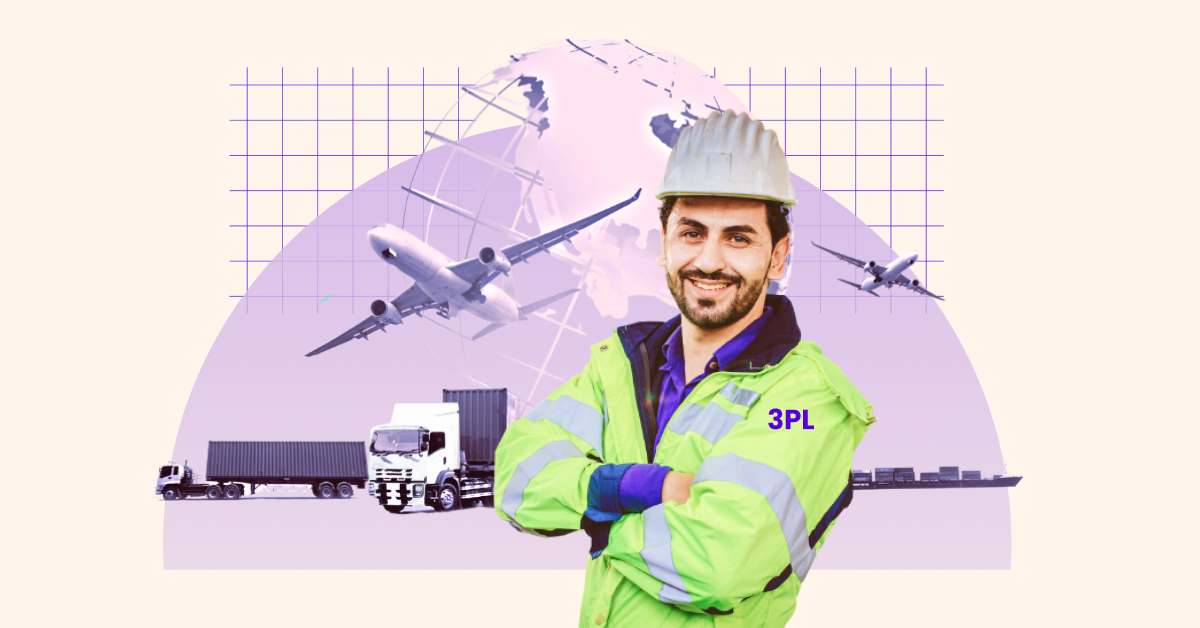
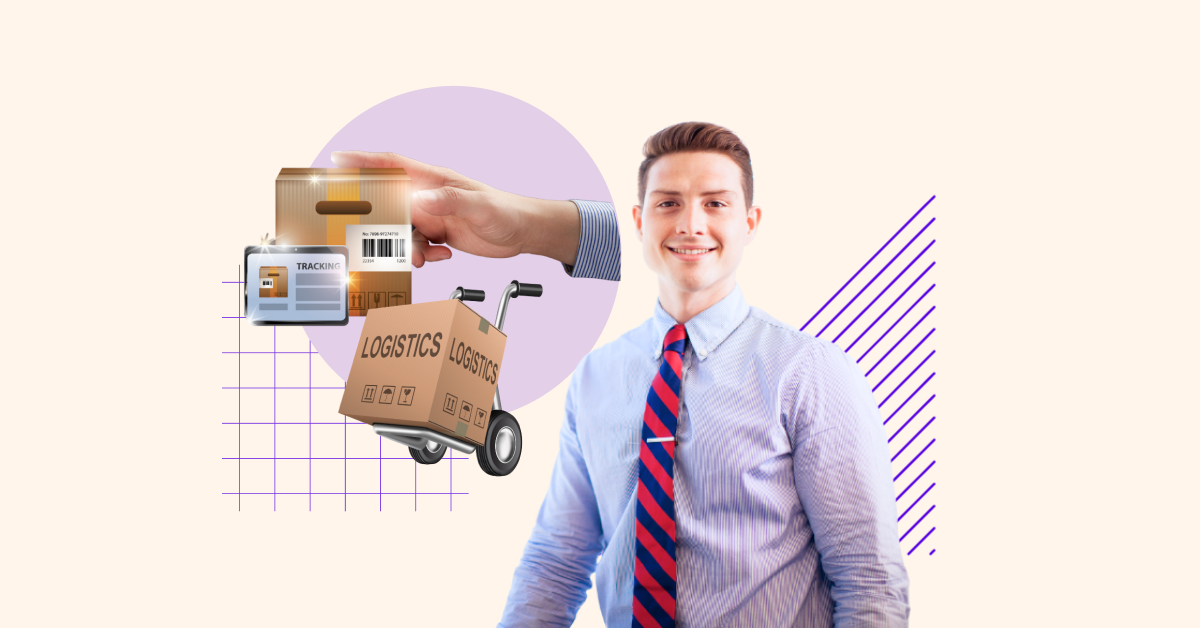

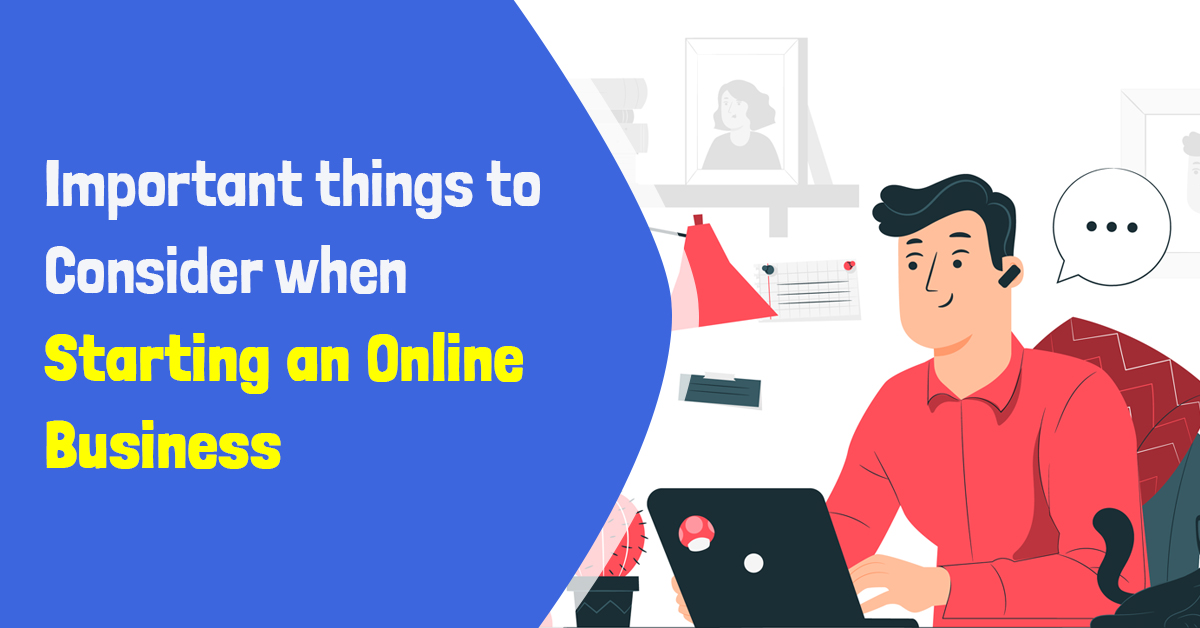
 Ricky Hayes
Ricky Hayes
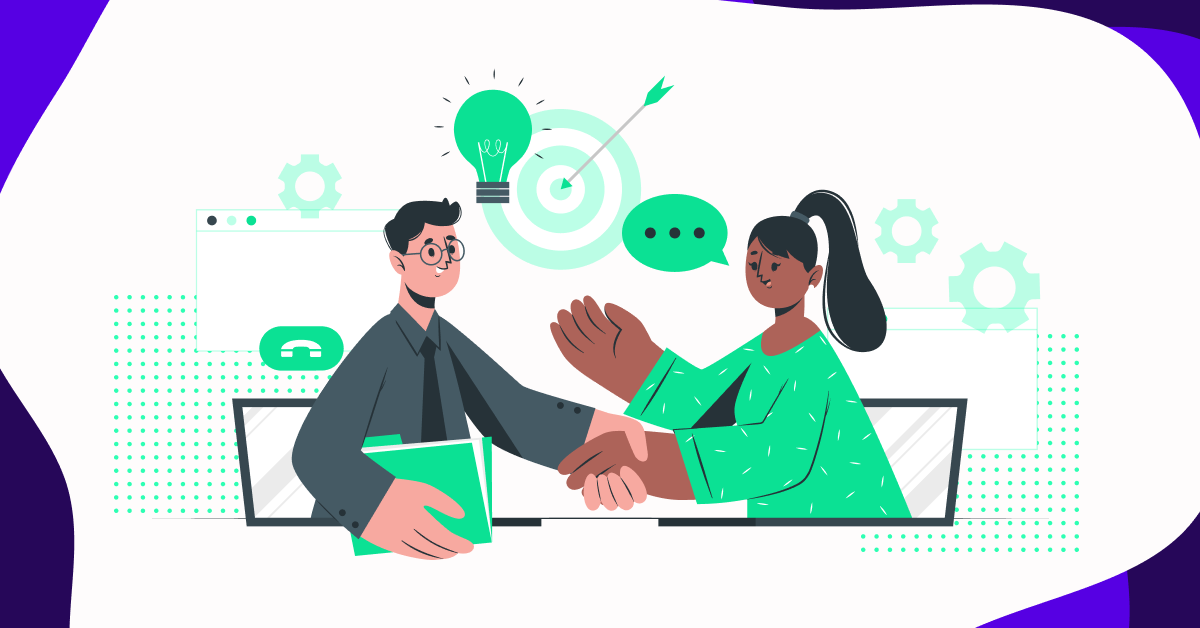

 Trisha Ballesteros
Trisha Ballesteros